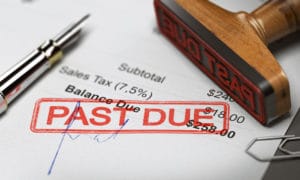A Excellent Tool To Collect On Debt Judgements
People often never hear of Writs of Enforcement. Winning in court is the first step to collecting what someone owes you. If you win in either the Alberta Provincial Court (small claims court) or the Alberta Court of Queen’s Bench, you receive a judgement. The judgment is a piece of paper that says that you won in court and the defendant (the person you sued) owes you money. The judgment specifies the exact amount owed. However, this is only the first step.
Next, you need to collect on that judgement. Some defendants pay what is owed right away. Others refuse and try to negotiate a lower amount that they willing pay without a fight. Some defendants do not have any money to pay. Lastly, some defendants outright refuse to pay. A handy tool to collect is a Writ of Enforcement. Read below or, connect with Kahane Law Office in both Calgary and Edmonton. Our collections lawyers help collect what is owed to you.
What Is A Writ Of Enforcement?
A Writ of Enforcement is a document created by statute in Alberta. The Civil Enforcement Act is the law passed by the Alberta Government to help with enforcement

. Once you have your judgement, you then file the Writ at the courthouse. Specific information is included in the filed document. For example, we require the following information for the Writ including the:
- name of the creditor;
- address of the creditor;
- name of the debtor;
- address of the debtor; and lastly
- names and contact information for agents or lawyers for the creditor.
How Writs Of Enforcement Help Collect On Debts
Once our office files the Writ Of Enforcement, we the proceed with collecting what the debtor owes you. This process helps with collecting on the judgement in many ways. As a collections tool it allows us to:
File At The Personal Property Registry
Filing at the Personal Property Registry (or PPR) allows you the next step of enforcing your judgement. It also allows for sharing in any funds paid to the Clerk of the Court on the garnishing of funds from bank accounts or employers. Garnishment of funds is often the first and easiest step to collecting on the debt. However, registering at the Personal Property Registry also allows for seizure of assets. We assist with seizing assets of a debtor. Once any eligible assets are seized, the next step is for them to be sold. Often, facing a seizure of assets, debtors make payments. Registering your interest at the PPR is a service we offer on a flat rate basis.
Filing At Land Titles
A person’s largest single asset often is their home. Registering a Writ of Enforcement against someone’s home usually gets their attention. If the debtor fails to pay at this stage, the next step is to force the sale of the home. Alternatively, leaving the registration on title, often works on its own as a solution. If the debtor sells their home or refinances their home, then the process almost always includes paying out the Writ. The Alberta Land Titles Office requires very specific forms and documentation for registration of any interest in land. The registration of your interest on title to the debtor’s home, is a legal service Kahane Law Office offers on a flat rate basis.
Allowing A Person To Earn More
Since Court Judgements remain valid for 10 years, with a chance to extend them for another 10 years, these are powerful collection tools. Most people, as life progresses, make more money each year. For example, they earn raises, promotions, grow their business, etc. Even without raises or promotions, they continue to earn income each year. If a person lacks the ability to pay your judgement immediately, with the Writ registered, they often earn enough to pay it over the following 20 years.
Why Hire Lawyers For This Process
Most people agree that collecting money owed to them is important to them. Failing to complete any of the steps of enforcing a judgement, may lead to the inability to collect or severely hamper the options to do so. Our litigation lawyers regularly collect on judgements. Filing the Writ of Enforcement is only the first step on collection on judgements. We understand the process and ensure the completion of the steps properly and in a timely manner. This allows for a quicker collection of funds owing on your judgement. Lastly, taking these steps quickly also often helps protect your ability to collect from a debtor who decides to liquidate assets.
Cost Of Collections Using A Writ Of Enforcement
The cost of collecting on your judgement varies. At Kahane Law Office, we offer choice to our clients. We offer flat rate services and hourly services. In addition, we offer complete start to finish service for collecting on judgements or a per step approach. This means you either allow us to collect for you or pay us to do a single step, such as filing a Writ of Enforcement at the courthouse, at land titles or at the PPR. You decide. Fortunately, to make this more affordable, the debtor becomes liable for some or all of the costs of enforcement.
Registering A Writ Of Enforcement In Calgary And Edmonton
Let us secure what is owed to you. With offices in both Edmonton and Calgary, we help with collections through most of Alberta. The fastest way to connect is via email. Please email us using this email. However, we enjoy hearing from our clients on the phone too. Call today. In the Calgary area, call (403) 225-8810. In the Edmonton area please call (780) 571-8463.

